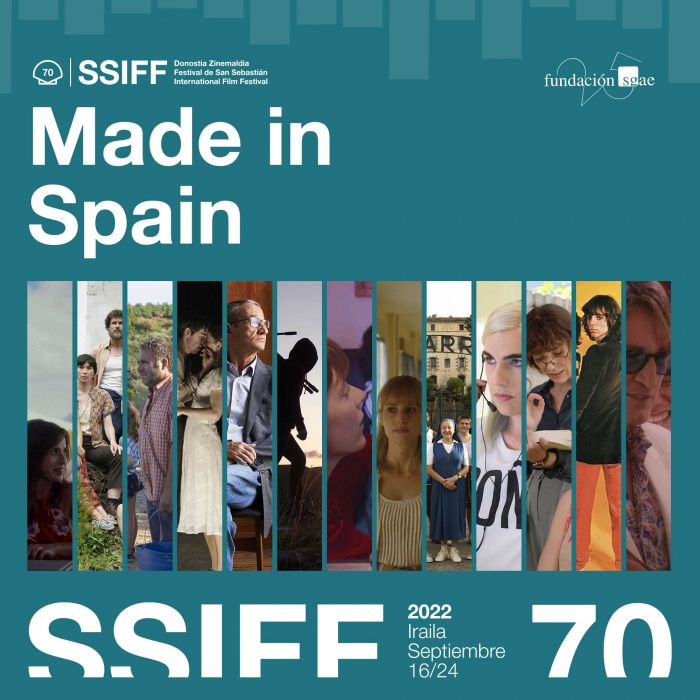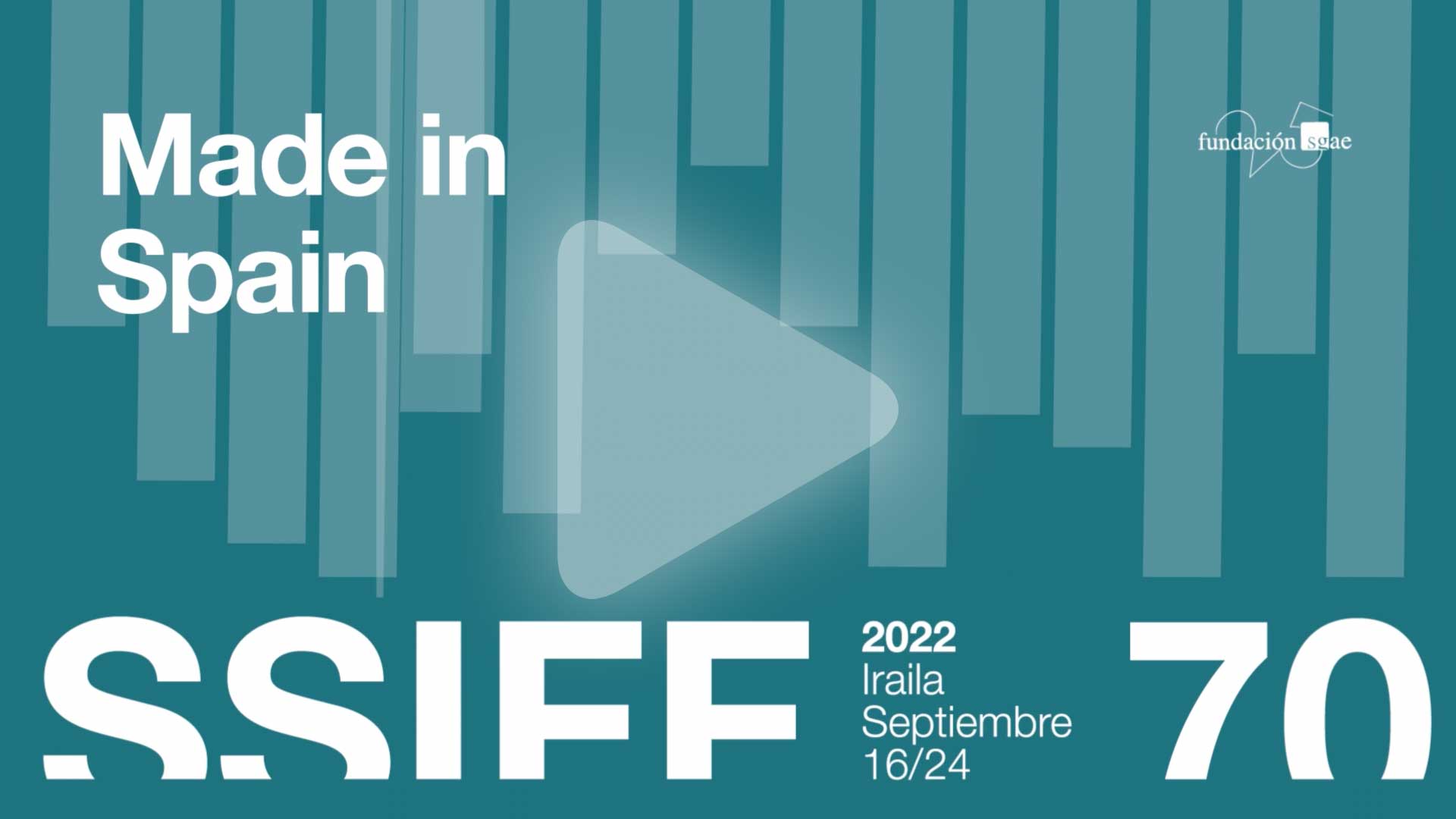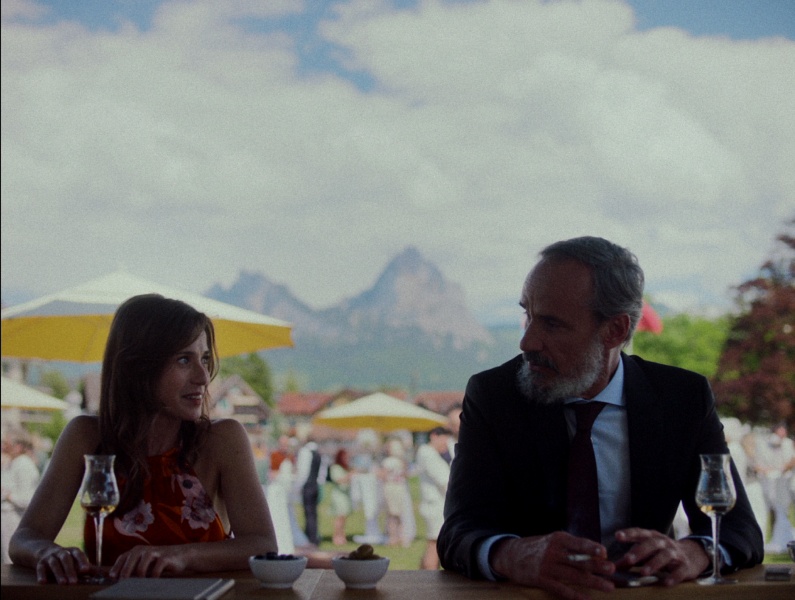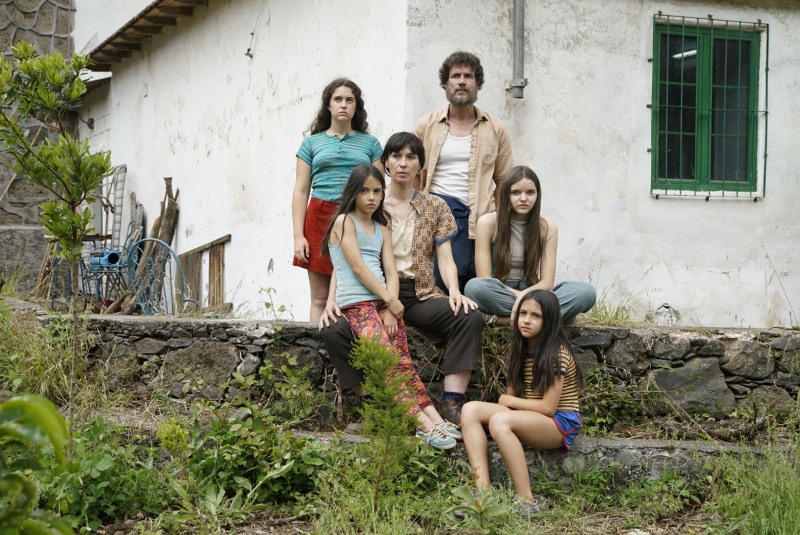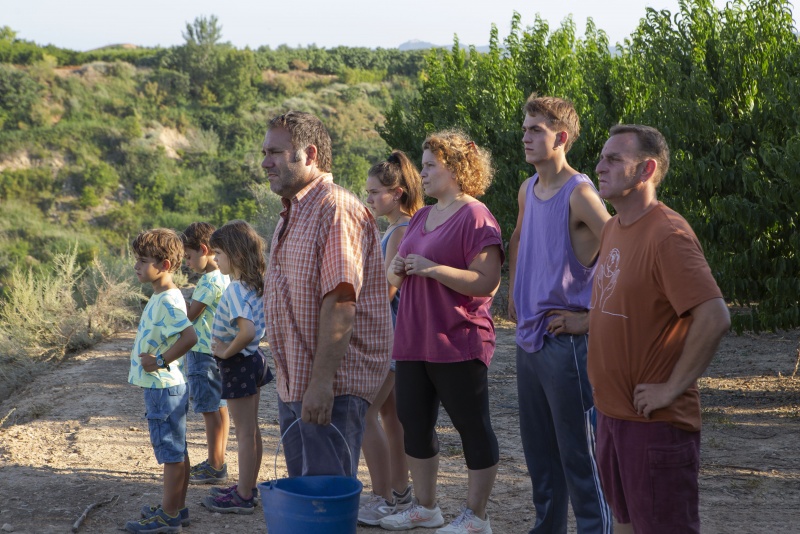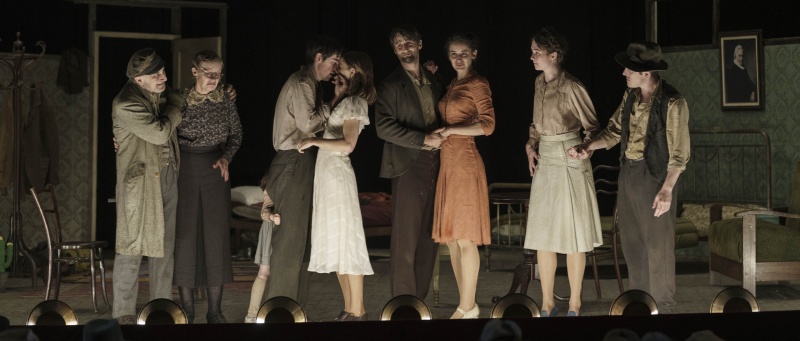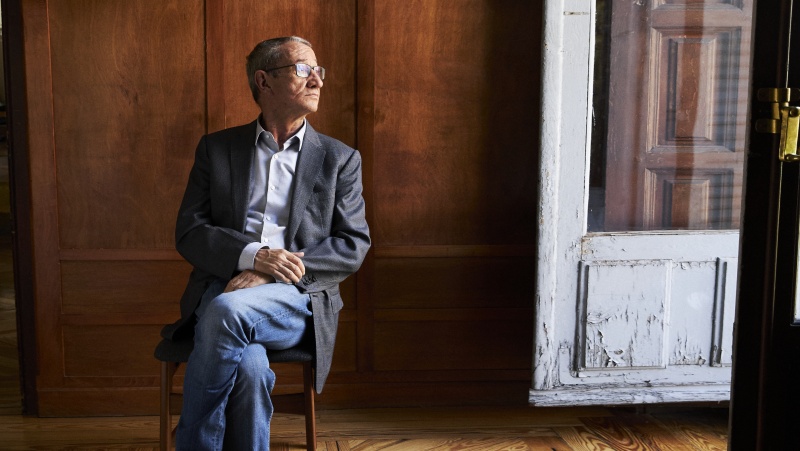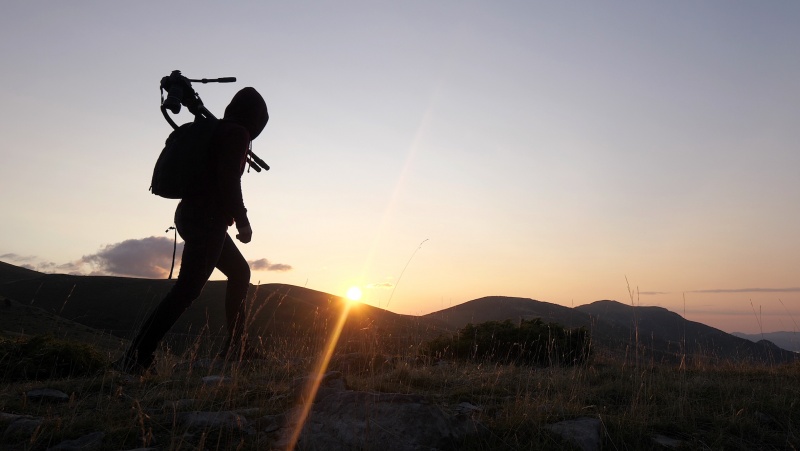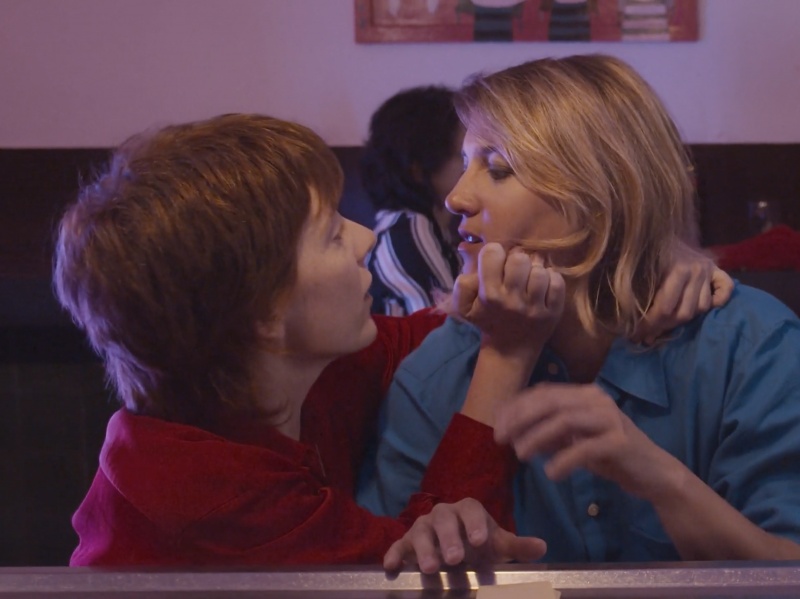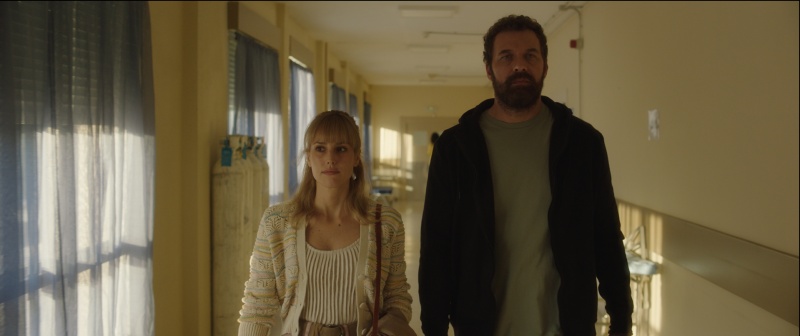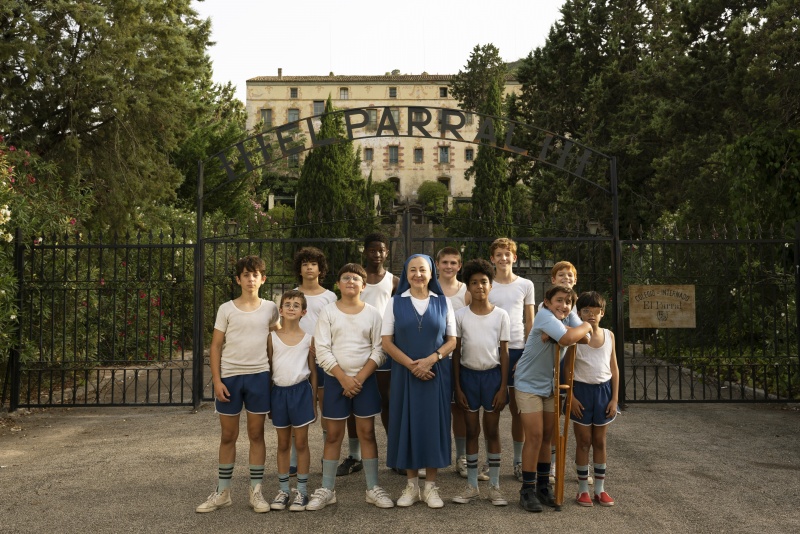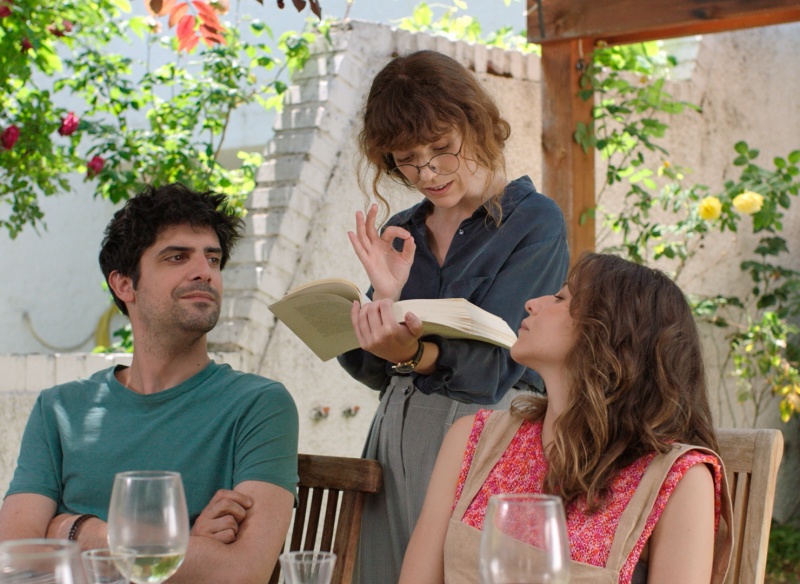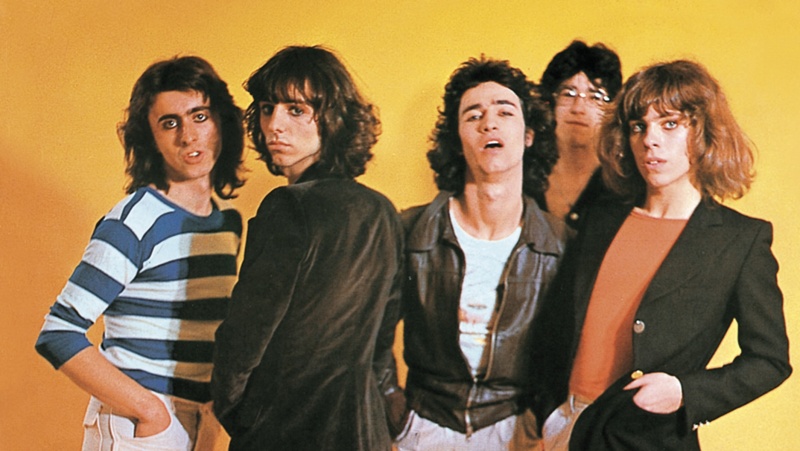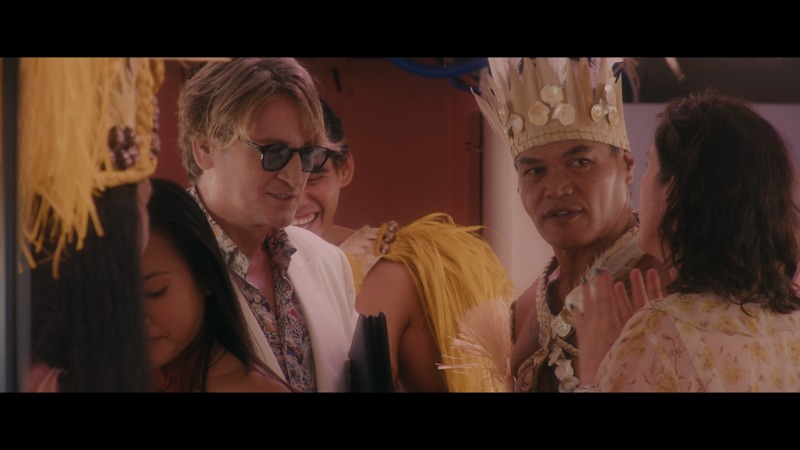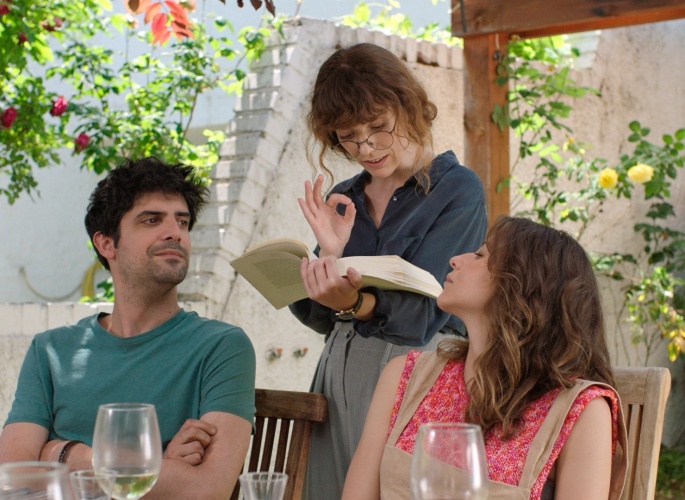Also screening are the films by Roberto Bueso, Zaida Carmona, Juan Miguel del Castillo, Rodrigo Cortés, Carlota González-Adrio, Albert Serra, Adrián Silvestre, Carla Simón and Jonás Trueba
Made in Spain, San Sebastian Festival’s non-competitive section for a selection of the year’s Spanish films will be made up at its 70th edition of thirteen feature films, four of which will be world premieres, while the remainder will be titles previously screened at other international festivals or recently premiered.
Traditionally, Made in Spain is made up of titles coming from other major cinematic events; however, this year, to run from September 16-24, one third of the films are world premieres. This is the case of the film to open the section, El color del cielo / Color of Heaven, starring Marta Etura and Francesc Garrido. The movie representing the directorial debut of Joan-Marc Zapata (Barcelona, 1989) tells the tale of a reunion in Switzerland between a well-known film actress and an eminent philosopher.
Another of the world premieres will be Entre montañas / Alone in the Mountains, the first feature film as a director from Unai Canela (Barcelona, 2004), who spent lockdown during the pandemic in a small Pyrenean town and filmed himself to show his connection with nature.
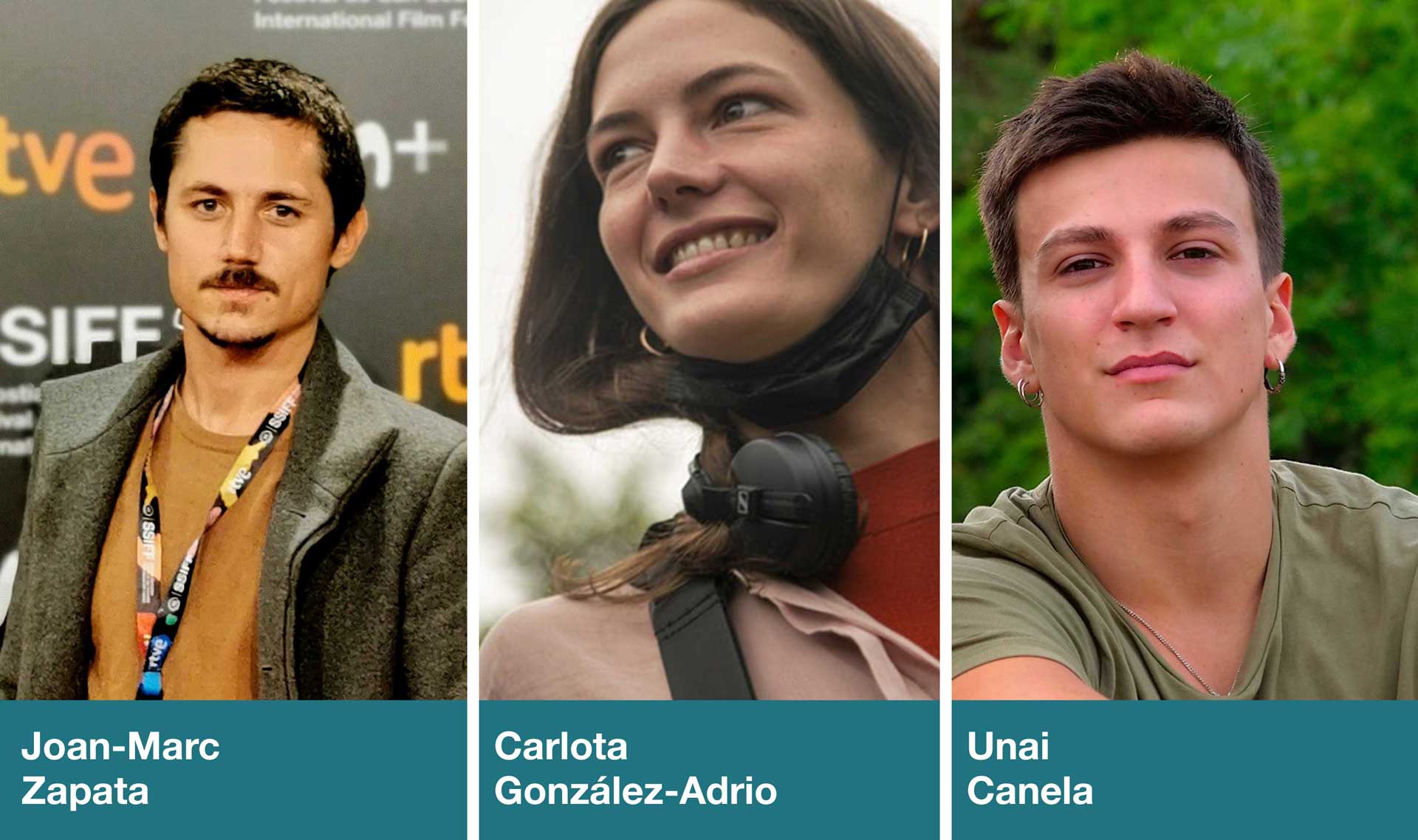
Álvaro Longoria (Santander, 1968) will participate with Tequila. Sexo, drogas y rock and roll / Tequila. Sex, Drugs and Rock and Roll, a documentary narrated by Cecilia Roth looking back at the history of Tequila, the famous rock band fronted by Ariel Rot and Alejo Stivel. The Cantabrian director and producer returns with this film to the Festival, where he previously presented works including Hijos de las nubes, la última colonia (Sons of the Clouds, Made in Spain, 2012),The Propaganda Game (Zabaltegi, 2015), Ni distintos ni diferentes: Campeones (Velodrome, 2018) and Sanctuary (Other activities, 2019).
The last of the Made in Spain four world premieres will be El crítico / The Critic, a documentary directed by Juan Zavala (Tolosa, 1964) and Javier Morales Pérez (Madrid, 1973), focused on the figure of Carlos Boyero, one of Spain’s most popular and controversial film critics. Zavala and Morales have participated as screenwriters and producers in a good number of films related to the cinema, such as Regreso a Viridiana (2011) and El último adiós de Bette Davis (2014).

FILMS COMING FROM OTHER FESTIVALS OR RECENTLY PREMIERED
The section will close with another first film, La casa entre los cactus / The House Among the Cactuses, directed by Carlota González-Adrio (Barcelona, 1996), former student at the Elías Querejeta Zine Eskola who brings a suspense-packed emotional thriller about a perfect family whose life is thrown into disarray with the arrival of an outsider. The film will be released a few days before its screening at the Festival.
The section will include the film that brought the Malaga Festival to a close, Llenos de gracia / Full of Grace, the second feature film from Roberto Bueso (Valencia, 1986), starring Carmen Machi alongside a cast featuring Paula Usero, Anis Doroftei, Pablo Chiapella, Manolo Solo and Nuria González. Newcomer Zaida Carmona (Castellón de la Plana, 1986) stars in and directs La amiga de mi amiga / Girlfriends and Girlfriends, winner of an award in the Un Impulso Colectivo section of Barcelona’s D’A Film Festival; Juan Miguel del Castillo (Jérez de la Frontera, 1975) will participate with his second feature film, La maniobra de la tortura / Unfinished Affairs, which competed at Malaga and stars Natalia de Molina, Fred Tatien and Gerardo de Pablos.
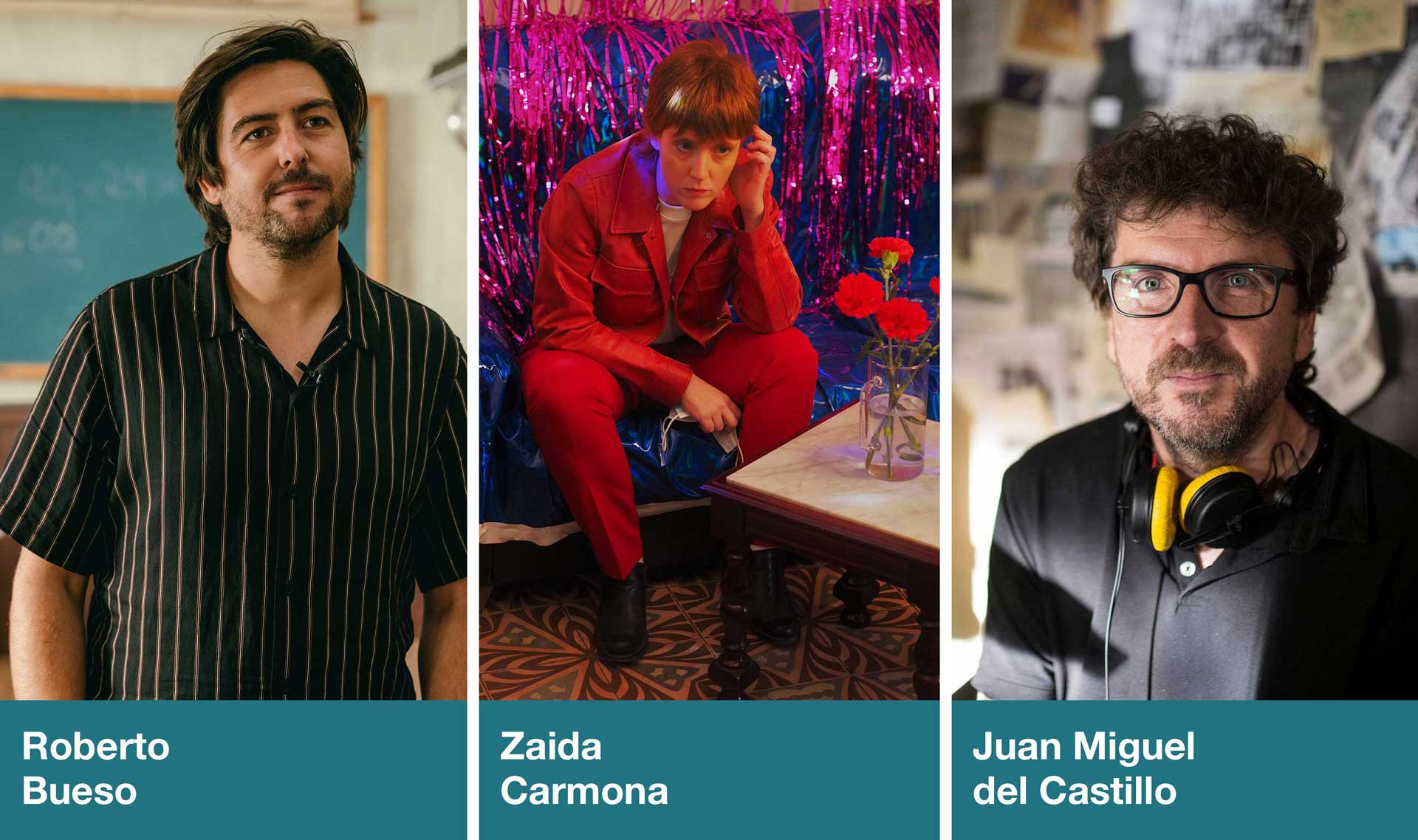
Furthermore, Rodrigo Cortés (Ourense, 1973), who participated in Zabaltegi-Pearls with Buried, will return to San Sebastian with his latest work, El amor en su lugar / Love Gets a Room, following its showing at the Seville Festival and its commercial release in cinemas. Adrián Silvestre (Valencia, 1981) will present Mi vacío y yo / My Emptiness and I, his third film, premiered in the Official Section of the Rotterdam Festival and winner of the Silver Biznaga Special Jury Prize at the Malaga Festival. For his part, Albert Serra (Banyoles, 1975) will show his latest film, with which he participated in the Official Selection at the Festival de Cannes, Tourment sur les îles / Pacifiction, whose lead character is the calculating high commissioner of Tahiti island.
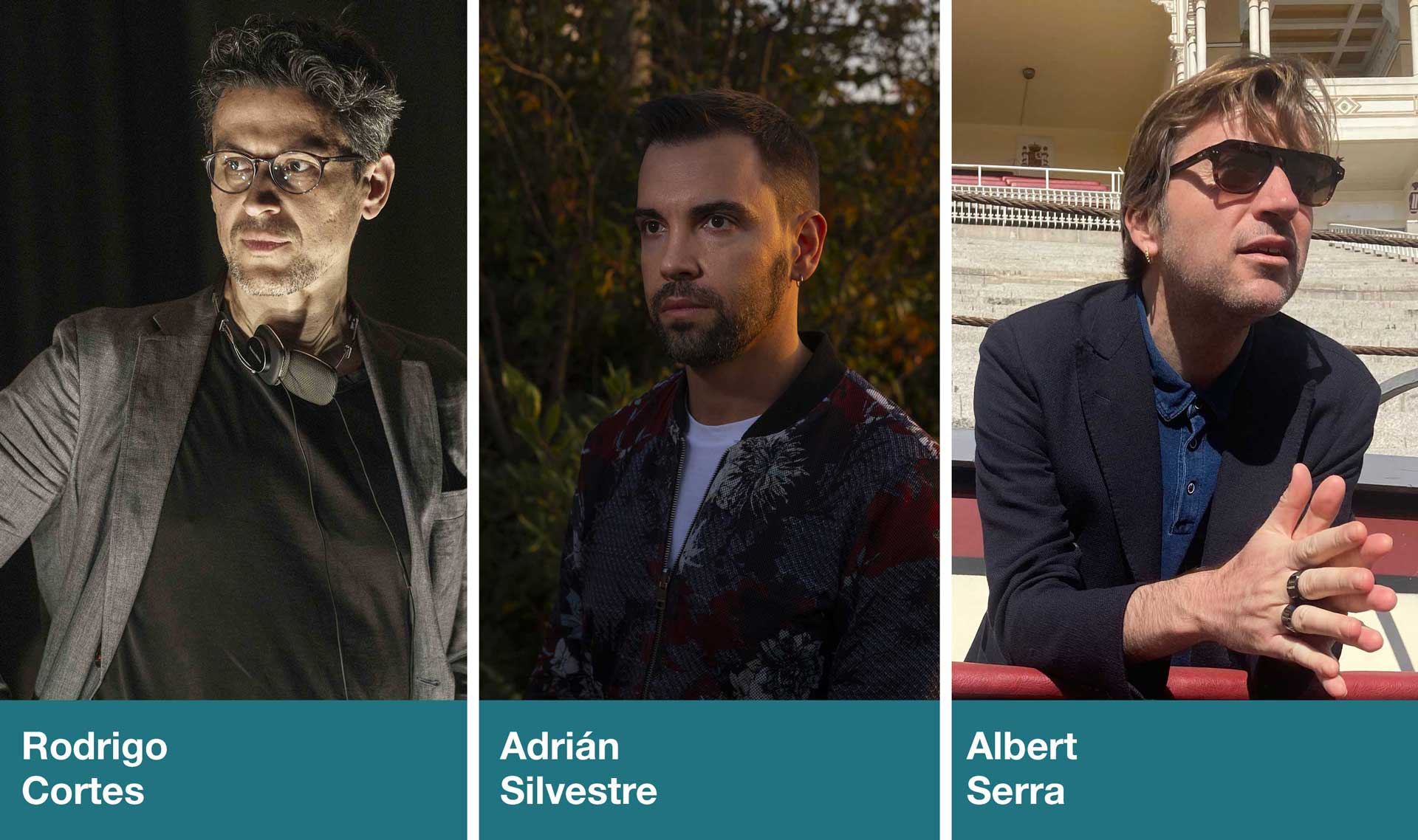
Lastly, Carla Simón (Barcelona, 1986), who will participate out of competition in Zabaltegi-Tabakalera with the short film Carta a mi madre para mi hijo / Letter to My Mother for My Son and has already screened her debut in Made in Spain, Estiu 1993 / Summer 1993, will return to the section with her second film, Alcarràs, winner of the Golden Bear at the last Berlinale.
Jonás Trueba (Madrid, 1981) will participate with Tenéis que venir a verla / You Have to Come and See It, winner of the Special Jury Prize at the Karlovy Vary Festival. Trueba has not only presented several of his earlier works in Made in Spain, but has also competed in the Official Selection withLa reconquista / The Reconquest (2016) and with Quién lo impide (Who’s Stopping Us, 2021), winner amongst other distinctions of the Silver Shell for Best Supporting Performance and the FIPRESCI Prize.
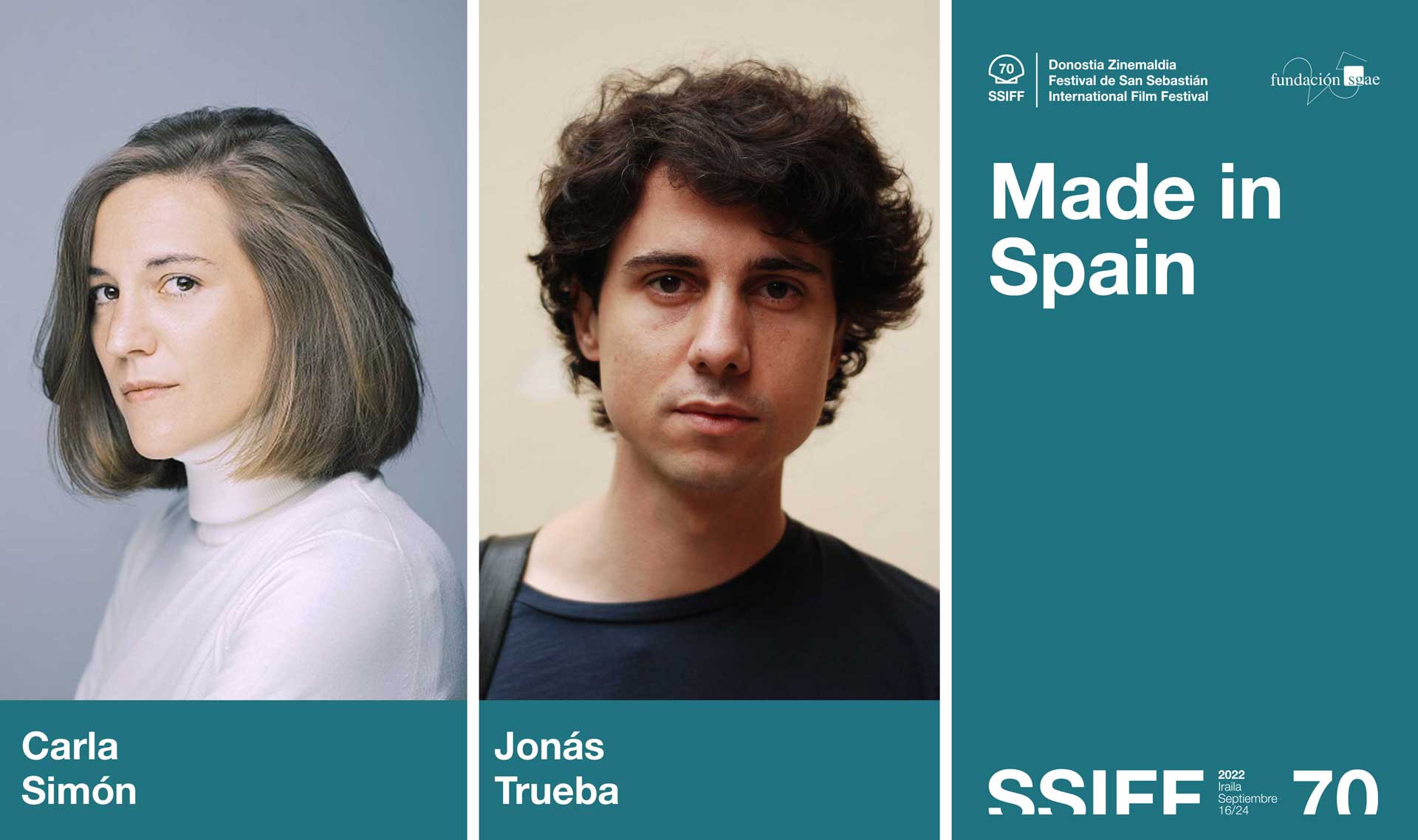
Made in Spain has the SGAE Foundation as its Collaborator. In addition, for the last three years the SGAE Foundation has given its Dunia Ayaso Award at the Festival. This accolade is conceived as a homage to the screenwriter and director from the Canary Islands who died seven years ago and goes to the film which, as well as its cinematic value, either has females characters in the lead parts of the story or portays the situation of women in society. In addition, since 2019, the Foundation has been funding the Award for the Best Basque Screenplay Award, promoted by the Basque Association of Professional Screenwriters. Lastly, this year the traditional Concert & Screening returns to the Velodrome, organised by the SGAE Foundation and the Basque Symphony Orchestra together with the Festival.
Filmstar Olivia Brontë travels to Switzerland for a photo shoot with an important fashion magazine. There she will run into Tristán del Val, a Spanish philosopher she had known years back. This reunion will prompt them to revisit the past and ask themselves where their chosen path is taking them.
Emilio and Rosa have created a perfect family. In the 70s, in a deserted area of the Canary Islands, they have built a home full of love for their five daughters, all named after flowers: Lis (Lily), Iris, Melisa, Lila (Lilac) and Dalia (Dahlia). Here, isolated from civilisation and from a life they left behind in their country, they enjoy their personal paradise, cut off from the world. A world that represents a threat which, if it interferes with their family, could finish it forever. Emilio and Rosa know, they are the only ones aware of the danger, that's why they have spent their whole lives keeping a terrible secret from their daughters.
After eighty years working the same land, the Solé family gathers to reap their last harvest.
January 1942. 400,000 Jews from all over Poland have been confined by the Nazis to a narrow ghetto in the middle of the city. Outside the walls, life continues. Inside, its inhabitants fight for survival. But the high brick wall can't stop the creative endeavours of a group of Jewish actors who put on a musical comedy at the Fémina theatre one frozen winter night. The spectators laugh and cry at a love story, forgetting their difficult situation for a moment. Behind the scenes, the possibility of making their escape after the performance throws the actors into a dilemma of life or death.
Carlos Boyero is one of Spanish cinema's most followed and feared figures. Controversy has hounded him since he published his first article more than forty years ago, and he has remained in the eye of the hurricane ever since. Is he the last representative of a disappearing time? Has social media put an end to the traditional influence of the critics. Taking the background and personality of this very controversial figure as its basis, El crítico / The Critic will also endeavour to reflect on the enormous changes taking place in Spain in the field of film criticism.
Unai is a teenager during lockdown for the pandemic in a small village in the Pyrenees. For more than a year, he intensely enjoys the passing of the seasons and the emotion of feeling connected to the nature closest to him and, often, the most ignored.
They're 30, but they live as though they were 20, even if they are too old to become young promises. They are enamoured with love, but destroy one another while looking for it, roving from ex-girlfriend to ex-girlfriend, from relationship to relationship. With pop and autofiction as its backdrop and the appearance of a famous woman singer who we're never sure is completely real, we will watch a game that kicks off when Zaida returns to the city after a breakup. La amiga de mi amiga is a screwball comedy involving 5 gay women. A moral tale set in the streets, beds and toilets of Barcelona.
Inspector Manuel Bianquetti is forced to accept a transfer to a police precinct in Cádiz. His initially peaceful move will soon be shattered with the discovery of the body of a young girl who reminds him of a terrible past. Despite the opposition of his superiors, Bianquetti will embark on a solo crusade to find the culprit, following clues that might be no more than figments of his imagination. The only person who seems to be on his side is his neighbour, a fragile nurse harassed by her former partner.
Marina, a rather unsual nun, arrives in the summer of 1994 at El Parral, a school threatened with closure. Despite being welcomed with all sorts of pranks by the boarders, boys with no families, Marina has an idea that will change everything: to set up a football team. With the help of two nuns, Angelines, innocent and fragile, and Tatiana, rough and kind, they will create something like a real family. Years later, Valdo, one of the boys, will make his debut with Real Madrid's first team.
Raphi is young, androgynous and somewhat naive. She writes poems and dreams of falling in love with a prince charming. She moves from her native France to Barcelona, where reality has little in common with her expectations. Diagnosed with gender dysphoria, she sets out on an arduous odyssey to assume her true identity. Doctors, work colleagues, trans friends, queer artists and even men she meets through Apps: all will give her advice, but only time and experience will help Raphi to find her place in the world.
Two couples of friends meet again. They listen to music, talk, read, eat, walk, play at ping-pong... It might not seem like much for a film, that's why YOU HAVE TO COME AND SEE IT.
Tequila. Sexo, Drogas y Rock and Roll is a documentary narrated by Cecilia Roth and with the participation of the survivors of the mythical rock band Tequila: Ariel Rot, Alejo Stivel and Felipe Lipe. The film tells the tale of the legendary rock band who provided the soundtrack for the liberation of young Spanish people during the transition. Five young people who suddenly pull off their dream of making good and those destroyed by the fame and success. But their songs have succeeded in lasting over time as indestructible classics.
On the French Polynesian island of Tahiti, the High Commissioner of the Republic and French government official, de Roller, is a calculating man with flawless manners. His somewhat broad perception of his role brings him to navigate the high end establishment as well as shady venues where he mingles with the locals. Especially since a persistent rumour has been going around: the sighting of a submarine whose ghostly presence could herald the return of French nuclear testing.

